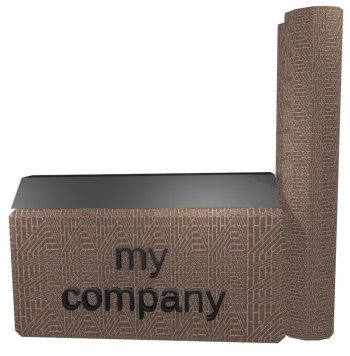Make money with our own invention and idea
Having a good invention is beautiful but it's even better to make money with it. Here I would like to give an overview of the possibilities to make money with your own idea.

Foto: Dirk Brunner; Lizenz: CC BY SA 3.0
We expect a great invention of "invisible headphones". The inventor has the idea on sound bone conduction to the ear. With such an invention it is important to determine whether patent protection or other rights are possible. It is also important to clarify what financial resources are available.
Business plan for the invention
A (small) business plan is the next step. Basic issues to be clarified there with the inventor.In any business plan must include at least the following:
● Customer Benefits
● Market Analysis
● Competitive Analysis
● Target Market
● Entrepreneurs Team
● marketing
● financing
● Implementation plan
● Opportunities and Risks
The wishes of the inventor must also be considered. In the business plan the economic viability of the idea is questioned. There are many excellent inventions with which however it is not possible to make money. Sometimes inventors don't like a business plan but this approach gives the invention a basis for further development of the idea. I present to you now some options.
Option: sell invention
Prefer the inventor not to set up its own company it is possible to sell the invention. Rights as a good patent would be an advantage. The invention is even more valuable if● The right buyer is found.
● High customer benefit is given.
● Large market volume.
● The technical problems have been solved.
● A prototype exists.
● The invention will be presented professionally.
The more points are true the more money the inventor can expect from the buyer. The contract preparation for the sale of the invention do lawyers. Here a handover period is usually agreed in which the inventor of the idea will help the company with the implementation.
The sale of an invention is done in a reasonable time frame and the inventor can devote further inventions.
Option: build your own business

Foto: Dirk Brunner; Lizenz: CC BY SA 3.0
Will the inventor create a business he has to ask the following questions:
● Does he have executive manager competences?
● He'd rather continue to invent something or build a business?
● He is aware of what is associated with the establishment of a company (personnel search, bureaucracy, needed capital etc.)?
● What role play he want?
The strong identification of the inventor with the company is often an advantage.
Option: cooperation with other companies
Avoid the inventor the risk of business start-up and he does not want to give completely out of his hands the idea by selling the invention, it may seek cooperation with a company. A property right is of particular advantage here. The inventor may in this case agree with the cooperate industrial companies, he continued in charge of the technical invention. The company has an in-house experts, and the inventor of a company to hand.If this team created works well for both sides there is a win-win partnership.
Without strategy many fail
If you make yourself from the outset no clear thinking about your invention, but simply into work into the blue the following can happen:● You may notice too late, that the invention is economically worth nothing and have lost a lot of money and time.
● After you have spent itself technically, you realize that the market has been overtaken by new developments. They were alone too slow.
● They have developed the invention to a (costly) prototype and not know what to do.
● your invention you have fully developed and are finding that you have these developed over the customer.
● make too late realize that you have not considered important issues such as service, sales, growth.
The later has to be changed, the more expensive it is.
license sales
Our inventor turns out that license sales is the best option. For this to have worked well through the following tasks.1. build prototype
2. Register Patent
3. Identify eligible companies
4. prepare presentation
Financial resources

Foto: Dirk Brunner; Lizenz: CC BY SA 3.0
Our inventor has no funds for the prototype. The patent he can pay himself. For this case there are (EU) funding programs, business angels and the possibility of cooperation with an industrial company. Money from the friend and acquaintances is also an option. In a cooperation with a company this could later produce the invention, depending on the contract.
Our inventor chooses the rich aunt and we cross imaginary fingers.
Typical questions and decisions
1. Can the invention be profitably? This emerges from a (small) business plan. If not, the invention will be discarded.2. If property rights (eg patents, utility models) are possible, consider doing so.
3. Is sufficient own money available? In most cases not. Options are: (EU) funding programs, Business Angel, Collaborations, rich friends
4. How should the invention placed on the market in order to make money? Options are: set up a company, licensing, collaborations.
This was an exemplary example of and an overview of the possibilities. Let yourself but please consult an
Every invention and each inventor are unique.
Talk to us
